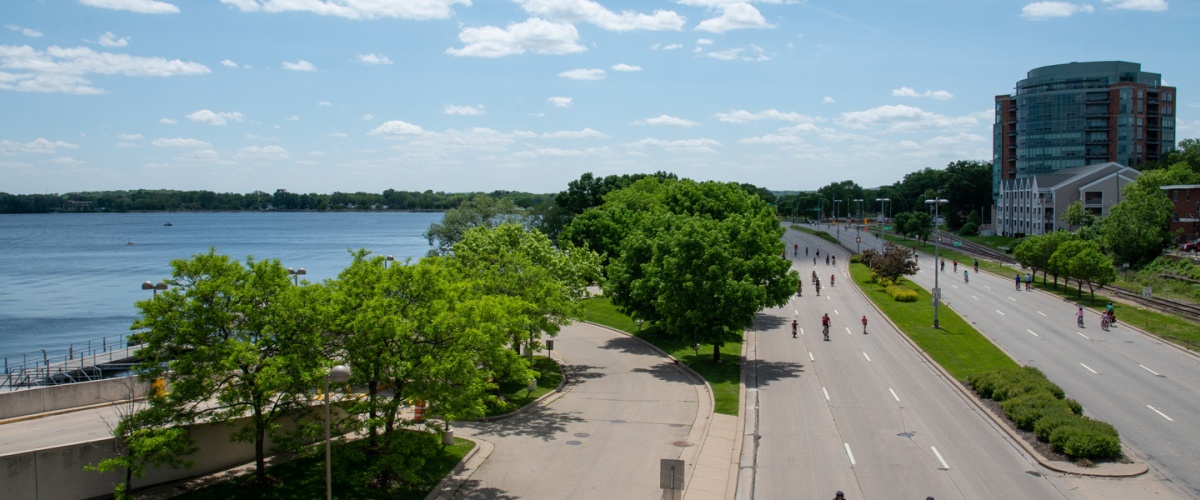
Madison Recognized for Exceptional Performance in National Competition for Energy Savings
Georgetown University Energy Prize contest recognizes top performing communities for increasing energy efficiency, reducing municipal and household energy budgets in towns, cities and counties across the nation
WASHINGTON, D.C. (November 21, 2017) – Today, the Energy Prize announced 10 communities that have advanced to the final round of the Georgetown University Energy Prize (GUEP), a national competition to rethink the way America’s small- to medium-sized towns, cities, and counties use energy. Madison, Wisconsin, is among six communities who are also being recognized for their efforts in not only reducing energy consumption, but developing innovative, replicable, scalable programs that will lead the way for thousands of other cities and counties working to save energy, reduce their budgets, and thrive in the 21st century.
"This is about bringing together communities with a shared goal of reducing energy consumption," said Energy Prize executive director Uwe Brandes. "Through the competition, communities have reduced carbon emissions and saved money. Our ten finalists have achieved impressive energy savings and reduced municipal and household energy budgets. They serve as models for other communities across our country and have offered innovative energy-saving strategies that can be replicated and scaled."
Since 2014, 50 cities and counties across the U.S. have worked to reduce their energy consumption. At the end of 2016, these communities had collectively saved 11.5 trillion BTUs of energy, reducing their carbon emissions by an estimated 2.76 million metric tons—the equivalent of taking one car off the road every 30 minutes of the competition—and saving nearly $100 million from municipal and household energy budgets. The final stage of the Energy Prize will be led by Uwe Brandes, faculty director of the master’s program in Urban and Regional Planning at Georgetown.
Madison has already saved over 2.5 million BTUs of energy per household.
"Madison is among several high-performing communities that championed the spirit of this competition and set an example for innovative energy savings," says Brandes. "We are grateful for their enthusiasm throughout the competition and their collaboration to improve energy savings on local and national levels."
Madison Mayor Paul Soglin adds. "City of Madison’s residents understand that is local action that will lead this country towards achieving our shared goals for carbon reductions."
The following six communities, including Madison are being given special recognition for their outstanding efforts during the competition (appearing in alphabetical order):
● Bend, Oregon
● Columbia, Missouri
● Madison, Wisconsin
● Palo Alto, California
● Sunnyvale, California
● Urbana, Illinois
"This is a national effort, so participants were encouraged to find solutions that were likely to yield continuing improvements within their own communities and also inspire replication in other communities," says Brandes who is also the faculty director of Georgetown’s Urban Planning Program. "Each of the competing communities should be commended for their tremendous efforts and creative contributions to reduce energy consumption and innovate new best practices."
To reduce their energy consumption, the communities:
● implemented bold new local policies on energy-transparency, energy-savings, and clean energy technology;
● conducted deep data-mining of their energy use and community infrastructure;
● focused on increasing energy efficiency in neighborhoods with high energy use in all income brackets;
● created novel financing mechanisms to enable their residents to invest in new energy upgrades; and
● used radically unique approaches to support behavior change, including gamification and the latest methods in social science research to help their communities rethink how they use energy.
The following 10 communities are advancing to the final phase of the Georgetown University Energy Prize (appearing in alphabetical order):
● Bellevue, Washington
● Bellingham, Washington
● Berkeley, California
● Chula Vista, California
● Fargo, North Dakota
● Fort Collins, Colorado
● Oberlin, Ohio
● Montpelier, Vermont
● Takoma Park, Maryland
● Walla Walla, Washington
In December, a panel of judges representing academia and industry will evaluate each community’s approach to innovative, replicable, scalable energy efficiency programs and will select a winning community based on a combination of energy performance scores and the advancement of new best practices over the course of the two-year energy-saving period.
About Georgetown University Energy Prize
The Georgetown University Energy Prize aims to rethink America’s energy use by harnessing the ingenuity and community spirit of towns and cities all across America. From 2013 - 2017, the Prize has challenged small- to medium-sized towns, cities, and counties to rethink their energy use, and implement creative strategies to increase efficiency. Throughout the competition, local governments, residents, utilities, and other community leaders worked together to demonstrate success in sustainably reducing energy consumption. For more information, visit www.guep.org.
